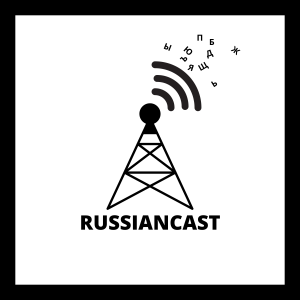In this chapter, we’re going to look at some cases of how to use infinitives which are governed by very strict rules. These are the rules which you should just learn and remember. These are the cases where only one of the aspects is possible, therefore it’s easier to just learn these rules rather than try to understand why a certain aspect is used. Replacing one aspect with the other wouldn’t convey a different idea, it would merely be wrong.
Infinitives with phase verbs
Phase verbs represent phase or stages of an action: beginning, continuation, and ending. Some Russian phase verbs include:
| Imperfective | Perfective | Translation |
| начина́ть | нача́ть | begin, start |
| продолжа́ть | продо́лжить | continue |
| зака́нчивать | зако́нчить | finish, end, complete |
| прекраща́ть | прекрати́ть | cease, stop |
| перестава́ть | переста́ть | cease, stop, quit |
| броса́ть | бро́сить | quit, give up |
| – | стать | begin, take to (doing something) |
These verbs are only followed by imperfective infinitives. Examples:
I started learning Russian.
Я начал учить (imp.) русский язык. – CORRECT
Я начал выучить (perf.) русский язык. – WRONG
She started reading a book.
Оля начала читать (imp.) книгу. – CORRECT
Оля начала почитать (perf.) книгу. – WRONG
In this type of sentences, the aspect of the phasal verb doesn’t affect the aspect of the infinitive and it should be chosen according to some other factor. Both perfective and imperfective phasal verbs are only used with imperfective infinitives.
Compare:
a. Сегодня мы закончили обедать в 14:00. – single completed action (закончили – perfective, past) – Today we finished lunch at 14:00.
b. Обычно мы заканчивали обедать в 14:00. – habitual action (заканчивали – imperfective, past) – We usually finished lunch at 14:00.
a. Мы продолжаем обсуждать виды глагола. – action in progress (продолжаем – imperfective, present) – We continue discussing verbal aspects.
b. Мы сделаем перерыв, а потом продолжим обсуждать виды глагола. – consecutive actions in the future (продолжим – perfective, future) – We’ll take a break and after that we’ll continue discussing verbal aspects.
More examples:
Студенты перестали слушать (imp.) преподавателя.
Ваня бросил курить (imp.).
Мы продолжили работать (imp.).
Мы продолжим работать (imp.) после перерыва.
Мы закончили играть (imp.).
Я хотел ему всё объяснить, а он стал спорить (imp.).
Прекрати, пожалуйста, спорить! (Stop arguing please!)
Завтра мы начнём готовиться (imp.) к экзамену.
Бухгалтер закончил писать (imp.) отчёт.
Перестаньте ругаться (imp.)!
The phase verb itself can be in the infinitive:
Ваня хочет бросить курить (imp.).
Я хотел бы продолжить работать (imp.) с вами.
Вам нужно перестать спорить (imp.) с преподавателем.
Вы должны продолжать заниматься (imp.) наукой, у вас это очень хорошо получается.
Я не могу перестать думать (imp.) о ней.
Infinitives with не надо and не нужно
‘Не надо’ and ‘не нужно’ only combine with imperfective verbs, e.g.:
Не нужно этого делать (imp.)! – CORRECT
Не нужно этого сделать (perf.)! – WRONG
Не надо опаздывать (imp.)! – CORRECT
Не надо опоздать (perf.)! – WRONG
The same works for other words that denote negative advice, negative recommendation, criticism, and prohibition such as ‘не стóит‘, ‘не следует‘, ‘не советую‘, ‘запрещено‘, ‘запрещается‘, ‘не рекомендуется‘, ‘не рекомендую‘, etc.
Не стóит тратить (imp.) время на пустяки. – You shouldn’t waste your time on unimportant things.
Вам не следует идти (imp.) на эту встречу. – You shouldn’t attend this meeting.
Не советую тебе покупать (imp.) этот телефон. – I don’t recommend you to buy this phone.
Запрещается входить (imp.) в зрительный зал после третьего звонка. – It’s not allowed to enter the auditorium after the third bell.
Выходить (imp.) из автобуса во время движения запрещено. – It’s prohibited to get off the bus while it moves.
Не рекомендуем вам смотреть (imp.) этот фильм. – We don’t recommend you to watch this movie.
Не надо было (imp.) опаздывать. – You shouldn’t have been late.
Вам не следовало бы забывать (imp.) эти правила. – I would advise that you don’t forget these rules.
Вам не нужно было выходить (imp.) на этой остановке. – You shouldn’t have got off at this station.
More examples:
Не надо было так с ним разговаривать.
Им не следовало так себя вести.
Не рекомендуется принимать это лекарство перед едой.
Я бы не советовал вам приходить раньше 19 часов.
Вам не рекомендуется ложиться спать слишком поздно.
Здесь запрещено ставить машину.
Вам вообще не стоило принимать эти витамины.
Notice that a perfective verb in an affirmative sentence is replaced by an imperfective verb in a sentence with a negation:
Dialogues:
— Я думаю, надо с ним поговорить (perf.). – I think I should talk to him.
— Нет. Не надо с ним говорить (imp.). – No, you shouldn’t talk to him.
Perfective ‘поговорить‘ is replaced by imperfective ‘говорить‘
— Мне нужно всё рассказать (perf.) родителям. – I must tell everything to my patents.
— Не нужно им ничего рассказывать (imp.). – You don’t have to tell them anything.
Perfective ‘рассказать’ is replaced by imperfective ‘рассказывать’.
— Я хочу тебе кое-что сказать (perf.). – I want to tell you something.
— Не надо мне ничего говорить (imp.). – Don’t tell me anything.
Perfective ‘сказать’ is replaced by imperfective ‘говорить’.
Infinitives with надо не … and нужно не …
‘Надо не…’ and ‘нужно не…’ can be followed by either perfective or imperfective infinitives. Perfective infinitives are more common. ‘Надо не‘ + perfective infinitive emphasizes the importance of the specific one-time event or action and that certain precautions must be taken to avoid an undesirable outcome, e.g.:
…
The rest is available to Subscribers only. Please log in as a Subscriber to continue. Don’t have a Subscription yet? Join RussianCast!
Learn more:
What are perfective and imperfective verbs?
Perfective/imperfective pairs
Present tense
Past tense
Future tense
Imperative
